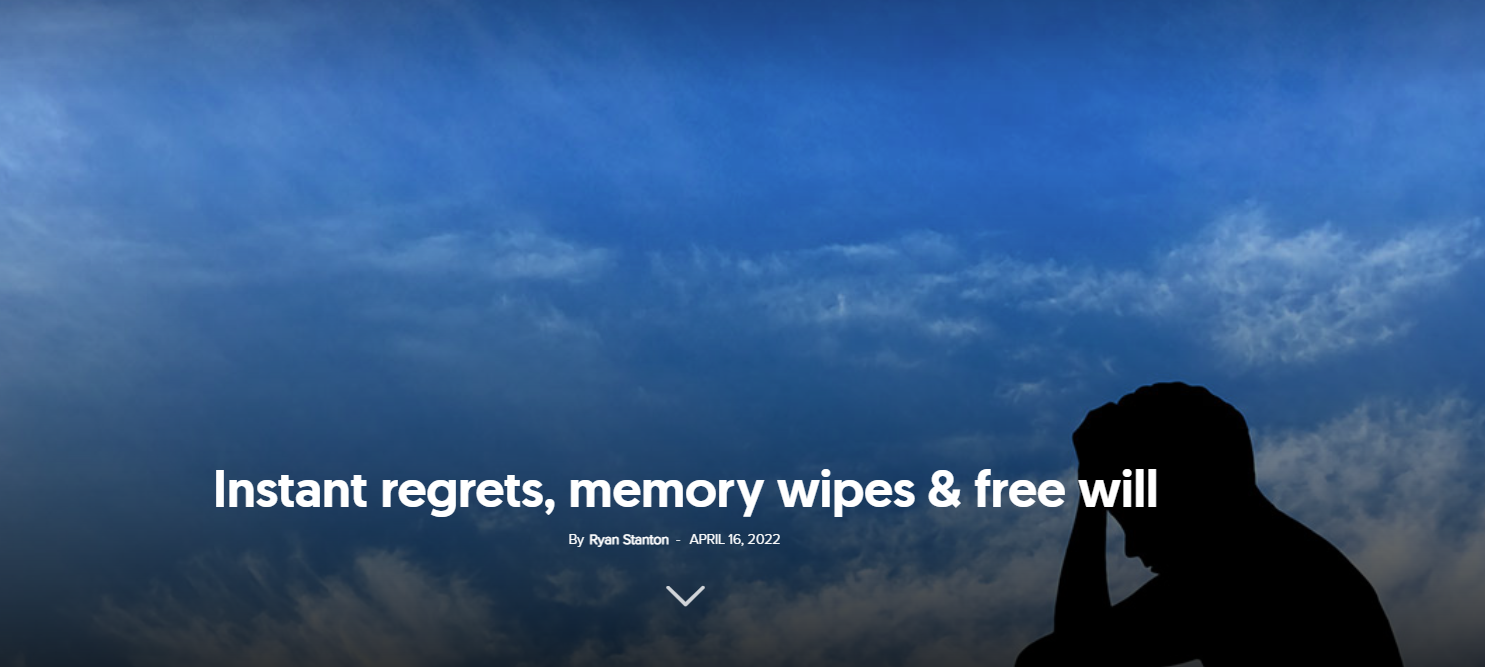He had played the lottery for years, using the same numbers every time. But on the one day that he forgot to buy a ticket, the draw revealed the winning numbers to be exactly his “lucky” numbers.
Overwhelmed by the regret of being so close to a life of wealth and yet lamentably missing his chance, the Liverpool man took his life. His story, told in a newsletter from Harvard University, troubles us with its tragedy. But it is no different from the stories of the billions of people who have died, after perhaps longer lives, but still embittered by ill-conceived or erroneous decisions.
On the deathbed
Bronnie Ware, an Australian nurse who worked in a palliative care centre for several years, caring for patients in their last 12 weeks of life, put together a list of the five most common regrets expressed before death. Ware compiled these regrets in a book, the summary of which, although not scientifically relevant[1], went viral on the Internet, revealing how many people consider it relevant to their experience.
Here are the regrets that Ware has compiled, sorted by frequency:
- I wish I’d had the courage to live a life true to myself, not the life others expected of me.
- I wish I hadn’t worked so hard.
- I wish I’d had the courage to express my feelings.
- I wish I had stayed in touch with my friends.
- I wish that I had let myself be happier.
A life without regrets
Still, not everyone needs to end up on a deathbed to feel that cold shiver generated by the thought that a different step could have led to a much brighter result than currently experienced. In a commentary on Ware’s book, psychologist Robert Firestone[2] noted that these unfortunate actions are, in fact, barriers that people put between themselves and the fear of death. He believes that many people live their entire lives at a low capacity because they are terribly afraid to accept the fact that they will die.
Therefore, they distract or anaesthetize themselves with various addictions: substances (which leave them destitute), material possessions (for which they have to work tirelessly), and people (who they have to keep satisfied). And when death is on its way, they come to realise that, in fact, they did not live their lives, but lived their regret.
The phenomenon observed by Firestone has received many solutions throughout history. One that endured over time was even put into music by world-class artists such as Edith Piaf (who “regretted nothing”) or Frank Sinatra (who, at least “did it [his] way”).
The noble advice—meant to save mankind from the desperate realisation that life has passed and, along with it, the chance for happiness—continues to be the same: “Live so that you have no regrets!” We are urged to live a fulfilled life, on which we can look back without heartbreak, even enjoying its memories and imagining a bright sequel for it. Who wouldn’t want that? Yet who can say that they had the wisdom to make the most advantageous decisions, without exception?
I’m wrong, therefore I’m learning how to think / live / forgive / love
The reality is that human development naturally incorporates error. It is known, for example, that during adolescence, the frontal lobe, which is responsible for impulse control, thinking and decision making, matures more slowly. This situation predisposes adolescents to making impulsive unfortunate decisions.
On the other hand, it is also interesting to note that in the human brain there is a “centre of regret”: the orbitofrontal cortex. Scientists have observed that people who have suffered brain damage in this region of the brain can no longer feel regret, even in the face of obviously poor situations. Moreover, author Kathryn Schulz recalls in a TED presentation that the inability to feel regret is characteristic of sociopaths.
In the end, the ability to regret is a necessary and even desirable feature. This is because a person capable of regretting a wrong decision demonstrates that their mind has been enriched by the prospect of two realities: the unfortunate one, generated by bad judgement, and the fortunate one, which would have been possible after a better decision. This means that, on a future occasion, the person has at least one reason to make a better choice.
Regret, therefore, should not be suppressed. On the contrary, it should be valued as a private lesson which you have paid for dearly. And if you have already paid for it, you should use it to its full potential: to better adapt to a reality that you now understand more deeply.
Alina Kartman is senior editor at Signs of the Time Romania and ST Network.




















